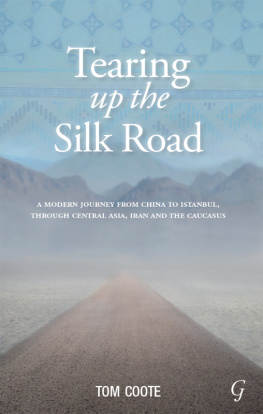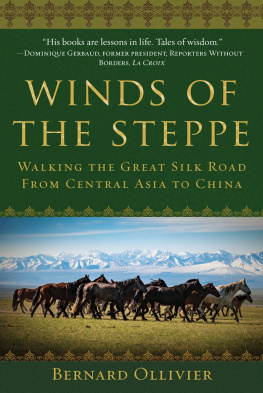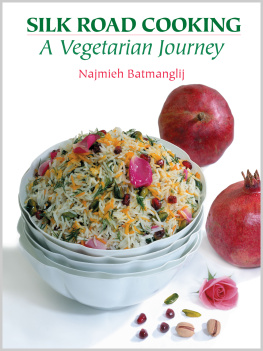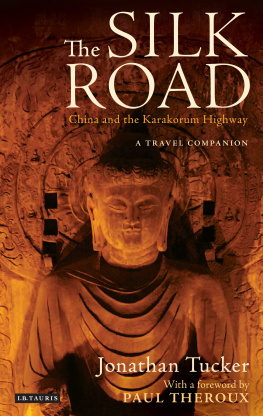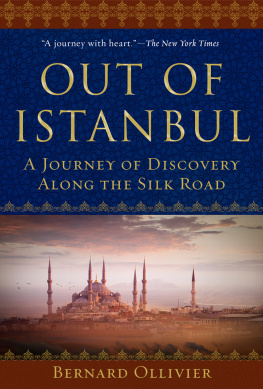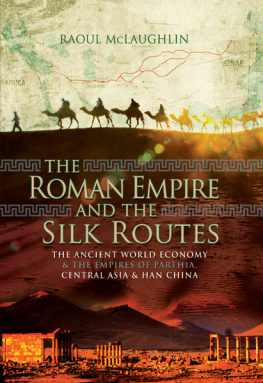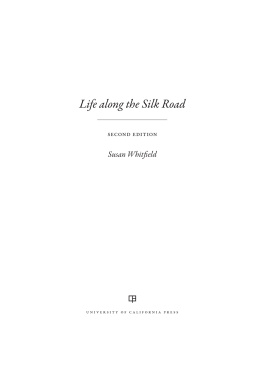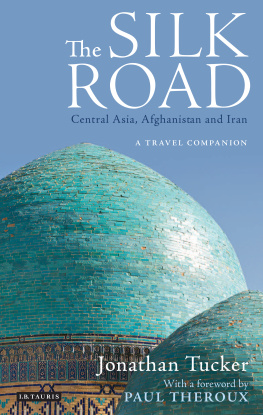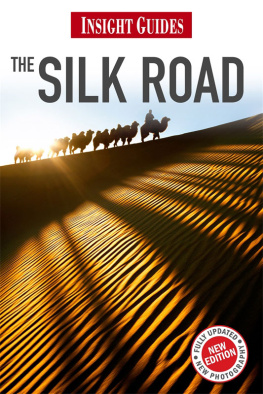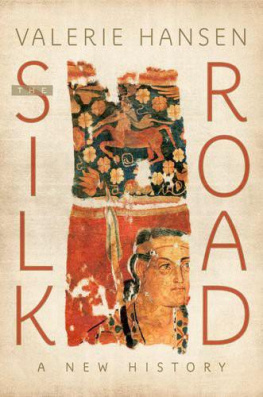TEARING UP THE SILK ROAD
A modern journey from China to Istanbul, through Central Asia, Iran and the Caucasus
Tom Coote
www.tomcoote.net

Visit the authors blog to see many photos from his visit to the Silk Road and read his travelogues. Just scan the QR code above with your QR reader.

TEARING UP THE SILK ROAD
A modern journey from China to Istanbul, through Central Asia, Iran and the Caucasus
Published by
Garnet Publishing Limited
8 Southern Court
South Street
Reading
RG1 4QS
UK
www.garnetpublishing.co.uk
www.twitter.com/Garnetpub
www.facebook.com/Garnetpub
blog.garnetpublishing.co.uk
Copyright Tom Coote, 2012
All rights reserved.
No part of this book may be reproduced in any form or by any electronic or mechanical means, including information storage and retrieval systems, without permission in writing from the publisher, except by a reviewer who may quote brief passages in a review.
First Edition
ISBN: 978-1-85964-302-0
British Library Cataloguing-in-Publication Data
A catalogue record for this book is available from the British Library
Typeset by Samantha Barden
Jacket design by Sanna Sporrong
Cover images Travel Bowie15 and Road to Salvation Wimstime, courtesy of Dreamstime.com
Printed and bound in Lebanon by International Press:
INTRODUCTION
T here is no such thing as the Silk Road. There were actually many Silk Roads that shifted and twisted through Asia, Europe and Africa over hundreds of years. The best known starting and end points were Changan (Xian), the old capital of China, and Byzantium (Constantinople/Istanbul), but many Silk Roads would bypass those cities all together. They didnt even carry mainly silk. About 30 per cent of the trade was made up of silk but these routes would also carry fruit, plants, paper, art, compasses, jewels, gold, gunpowder and the Black Death. More importantly, they carried ideas, skills and DNA.
Many consider the Silk Road to have been the Information Superhighway of its time. It can be seen as the first real instance of globalization, and to have laid the foundations of the modern world. It acted as a bridge between all the major civilizations Egypt, China, India, Persia, Arabia, Byzantium and Rome for over a thousand years and acted as a catalyst in their development. It wouldnt be until the sixteenth century, when new maritime trade routes opened up, that the Silk Road would begin to decline in importance.
Very few traders would ever travel the whole of the Silk Road they would usually specialize in one particular section before passing their goods on to other merchants with the necessary skills and knowledge to extend the trade. To travel the entire Silk Road would have taken many years and been full of dangers. In 2010 I decided to make this journey from China to Istanbul, through Central Asia, Iran and the Caucasus, using only public transport. I tore through in nine weeks.
ENDINGS AND BEGINNINGS
From East to West Sedentary vs. Nomadic Isolationism and Expansionism Imitation and Identity Love Will Tear Us Apart
I t had been her birthday the day before and the clock was ticking. I had bought her a silver bracelet in the night market in Luang Prebang but what she had really wanted was a baby. I probably could have bought her one in Laos for less than the price of a silver bracelet but she wanted to make her own one.
During our last day together I had been ill for the first time in more than six months of travelling. My head was spinning and my stomach was gurgling. She told me that I didnt have to go but I felt like I did. After months of being settled in the East, I would now be taking the long, hard road back to the West. She would travel back down through Laos and Thailand to stay with her family in Krabi, while I would carry on into China and beyond. It was something I had to do. I wasnt sure why.
The sleeper bus from Luang Prebang to Kunming would take twenty-four hours and was due to leave at seven in the morning. I had paid a bit extra to the shop I had bought the bus ticket from to be picked up at 6am from our run-down wooden guest house. We sat at the picnic table outside with our backpacks and waited. Now that it was time to leave, I was surprised to feel a lump rising in my throat. I had never expected to feel this way. After six months of being together every day we had started to snipe and bicker. I thought that it would be a relief to get away but, now that the day had come, it felt like things would never be the same again. At first, she had resisted when I told her of my plans to travel back to Europe overland. I had asked her to come with me but she thought that it would be hard work and that Kazakhstan was a stupid place to go on holiday. And she didnt want me wandering off on my own as she thought I was too buffalo (the Thai equivalent of a silly cow): she worried that I always believed everything everybody told me; it was better for me to stay where she could keep an eye on me. Recently, however, she had warmed to the idea of sending me off on my own and had seemed quite pleased to be getting me out of the way or at least until today. When a battered pick-up truck reversed into our alley and tooted its horn, we slid out from under the table and hauled in our backpacks and ourselves. We held our bags between our legs and each others hands as we rattled off down the track. Only a few minutes later we stopped outside a Chinese restaurant that was just opening up and the driver told me to get out. We held each other tight for a few seconds and then she was gone.
After half an hour or so, a few Chinese people started to turn up outside with large hold-alls and suitcases. When the bus eventually turned up I was pleased to find a friendly Swedish couple on board who had got on at the bus station. The bus had bunk beds that were too short to allow you to lie straight down but had too little head space to allow you to sit upright. My heart sank. I was inclined to suffer from a bad back, so this could well be a less-than-comfortable journey (although all the time that I was travelling my back seemed fine; it was only when I was sedentary for most of the day that I seemed to get problems).
I settled into the top bunk in front of Jacob and Elsa, who were due to fly back to Sweden from Beijing in a few weeks. It was awkward to talk as I had to keep turning around from a half lying, half sitting position. As I didnt even have a guidebook for China, Elsa let me have a look through her badly photocopied version of the old China Lonely Planet guide. They had bought it second hand in Laos and it wasnt until they had taken off the cellophane wrapping that they had realized many of the pages had been ripped out. Apparently the Chinese border guides would often rip out any pages from these guides that had anything to do with the troublesome provinces of Tibet or Xinxiang.
I tried to prop myself up on the top bunk so that I could read the ropey China guidebook, but, every time we swerved across the mountainous road, I would have to grab hold of something so that I didnt fall out. Spreading out my legs on either side of the bunk and jamming them into the corners kept me wedged in for a while but then I almost crashed head first onto the floor of the bus as we careered around a particularly dramatic switchback. After another couple of near escapes I resigned myself to lying down on my back like everybody else. From the top bunk, I couldnt even see out of the window. I handed Elsa back her guidebook and put on my headphones. It was going to be a long trip.

